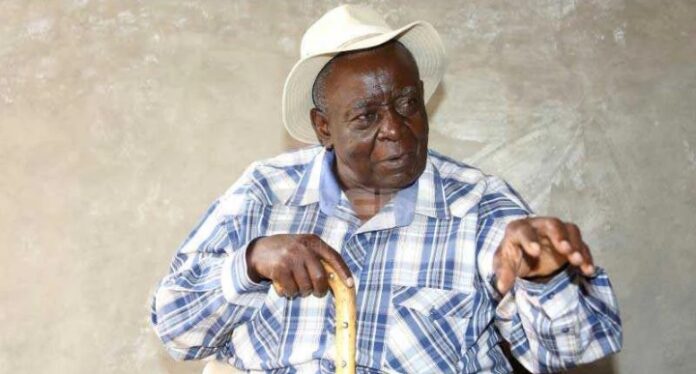In the early 1980s, Kenya was going through a difficult economic period. Teachers had not been paid their salaries for months, leading to a nationwide strike that left students without classes for weeks.
In the midst of this crisis, a man named Ibrahim Ambwere stepped forward with an offer that stunned the nation: he would pay the teachers’ delayed salaries, amounting to Sh. 48 million.
“That was a lot of money in the 80s, but I had it and I was willing to bail them out,” he said in an earlier interview.
It was an extraordinary act of generosity from a man who, by all accounts, had no formal education and came from a humble background.
Peter Gikungu: Ex-hawker whose M-Pesa shops made Sh. 187,000 daily commissions
Ambwere was born in 1936 in Maragoli, Western Kenya, to a polygamous family. His mother was deaf and dumb, and his father left to fight in the army when Ambwere was only four years old and never returned.
At the age of eight, Ambwere’s mother died, and he was forced to go to work to support himself and his two siblings.
He went around Maragoli working in people’s farms, before following a group of older men to work in pyrethrum farms in Molo, Nakuru County. But he quit on his first day, suffering from allergies.
Ambwere then met an Asian mason who employed him as a sweeper, a job he did diligently for close to 10 years. When his employer left Kenya, he gave Ambwere an old toolbox as a parting gift.
With some savings and the toolbox, Ambwere began his long journey towards a new life. He rented a house, married his first wife Zipporah, and started a carpentry shop with only Sh. 38 to his name.
In 1963, Ibrahim Ambwere made his first significant business agreement with Kaimosi Hospital to manufacture beds.
However, when the hospital failed to pay him, they compensated him with a used ambulance. Despite the fact that the ambulance had the word “Ambulance” written on it, Ambwere utilized it to transfer wood to his shop.
Within a span of five years, he was able to construct his own shop and shift from leased property.
From these humble beginnings, Ambwere went on to become one of Kenya’s wealthiest businessmen, with property in Kitale, Mbale, Kakamega, Kisumu, Nairobi, and other major towns.
He is worth billions, according to some estimates, and is richer than most politicians.
But Ambwere is a man shrouded in mystery. He rarely appears in public and admits that he has deliberately evaded the watchful eye of the media. “I trust very few people,” he proclaims.
Ambwere’s success story is remarkable, but some say it is “too neat” to be believed. There are rumors that he must have had connections with people in power to be where he is now.
Inside Citizen TV Linus Kaikai’s multi-million palatial mansion in Rongai
But Ambwere in a past interview laughed off these claims, saying that young people are used to hearing stories of theft and no longer believe in hard work and resilience.
Despite his immense wealth, Ambwere remains humble and grounded. He believes in giving back to his community and has sponsored several students through school. He has also invested in education, building schools and libraries in Western Kenya.
Perhaps his most significant contribution, however, was his offer to pay the delayed salaries of Kenyan teachers in the 1980s. It was an act of kindness that earned him the respect and admiration of many Kenyans, and one that he says he would do again if the need arose.
But Ambwere’s personal life has not been without its challenges. He has been divorced twice and claims that his former wives colluded with his children and other people to swindle him of his hard-earned money.
It was only with his current wife, Ebby Ingado, whom he married in 1994, that he found peace.








